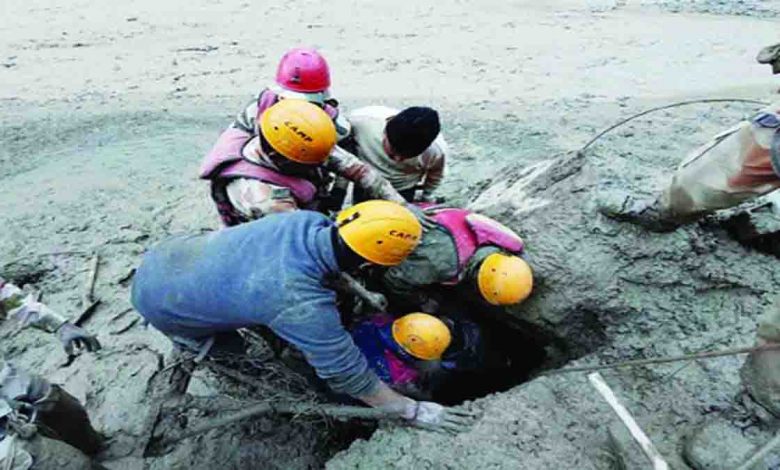Caution!

Whether human-made or natural, the Chamoli tragedy is another reminder to be on the right side of nature
Whether anthropogenic or natural, the latest catastrophe in Uttarakhand proves that Mother Nature does whatever it takes to maintain its balance. Time and again, the mighty nature tries to restore its equilibrium which has undoubtedly been disturbed by a range of human activity like mining and building dams, hydroelectric projects, roads and so on, all leading to pollution and global warming. It’s ironical that the ” climate change” debate occupies the centre stage only in the aftermath of such calamities. Why do we always wait for nature to wreak havoc to revisit our climate commitments? We seem to have learnt hardly anything from similar catastrophes, the last being the 2013 flash flood that killed more than 5,500 people, except strengthening our disaster response mechanism. It is like emphasising on damage control rather than finding sustainable answers to the existing climate crisis. The governments across the world should keep in mind that coordinated and sincere efforts are needed to live in harmony with nature, and all our attempts to overpower it will eventually prove counterproductive. We cannot win over nature but we can surely win it over. It would not be wise to pass the blame on any one country or continent as, when it comes to nature, we all swim or sink together.
The latest tragedy has unnerved environmental scientists as it happened on a clear winter day. The Defence Research and Development Organisation is investigating but has not been able to determine the exact cause that triggered the glacier burst near Raini village in Chamoli district. It resulted in the sudden rise of water which washed away the under-construction Rishi Ganga hydel project and damaged the Dhauli Ganga hydel project. At least 202 people are missing, with the number expected to rise, and 18 bodies recovered. Meanwhile, the total Budget allocation for the five autonomous institutes under the Ministry of Environment, Forest and Climate Change (MoEF&CC) has been reduced. However, the Government cannot be held responsible as the slashing of environmental allocations was done in the backdrop of making provisions to counter the Coronavirus pandemic. Certainly, COVID-19 or the reduction in budgetary allocations cannot be blamed for what happened in Uttarakhand. It is definitely a failure on the part of successive governments, global organisations and institutes, besides the lack of synchronised efforts to deal with climate change. Merely levying the carbon cess, especially on the poor nations, will hardly serve any purpose. We must make sincere efforts before yet another calamity hits us.
Tuesday, 09 February 2021 | Pioneer






